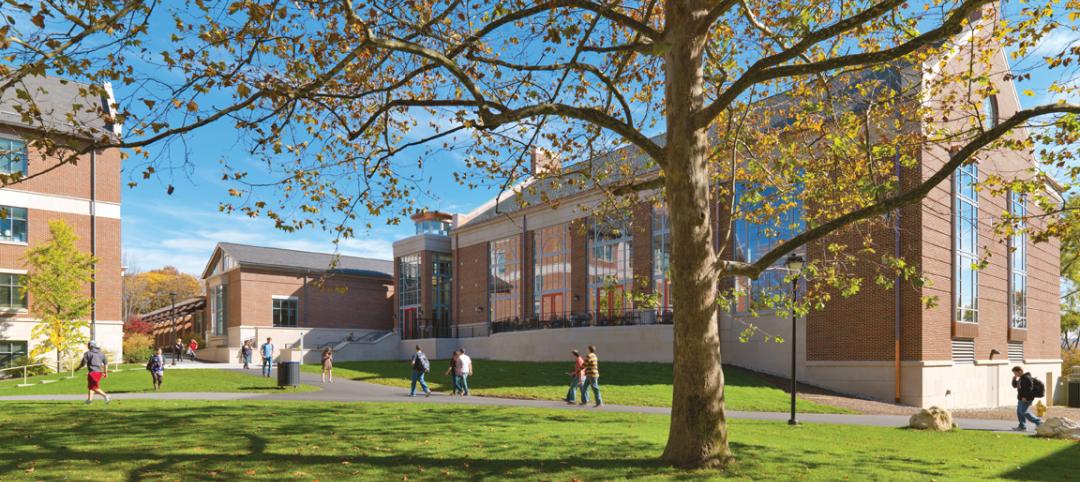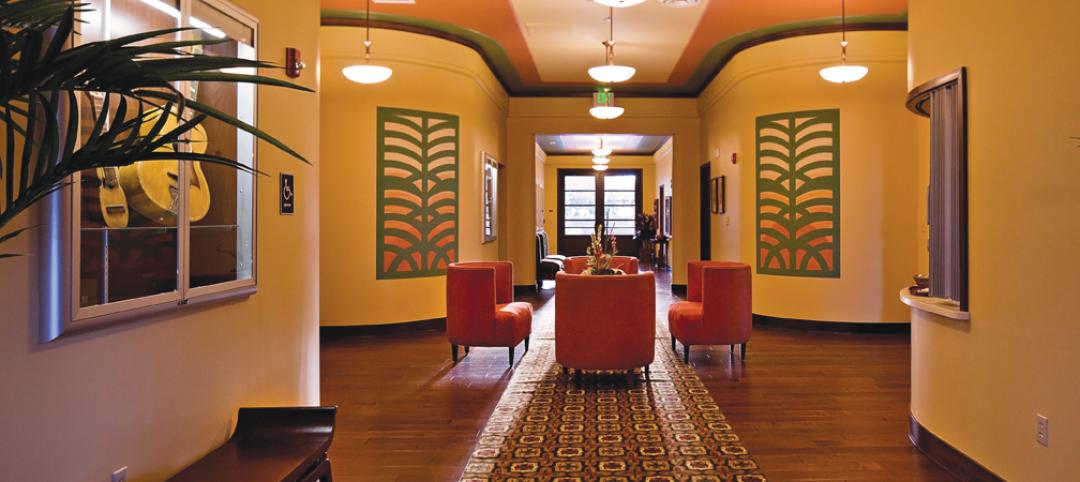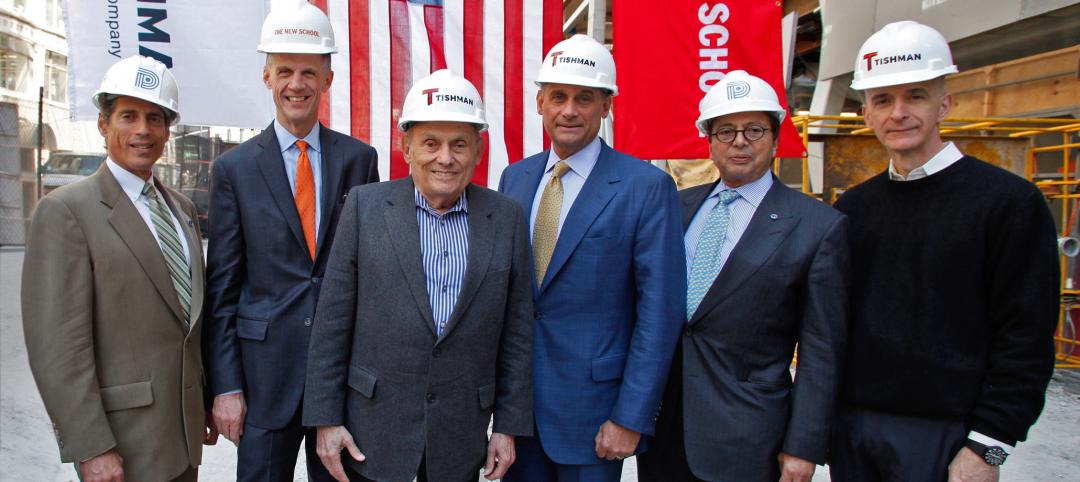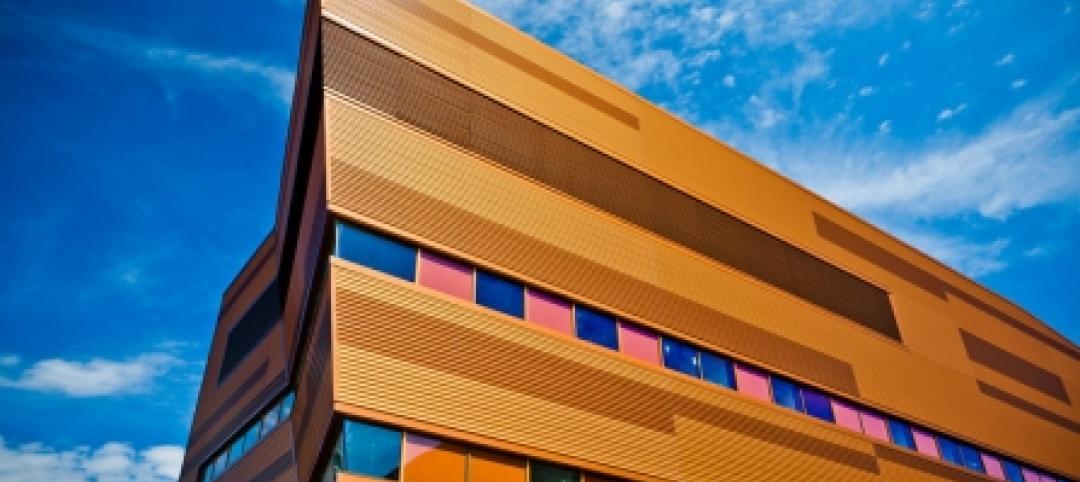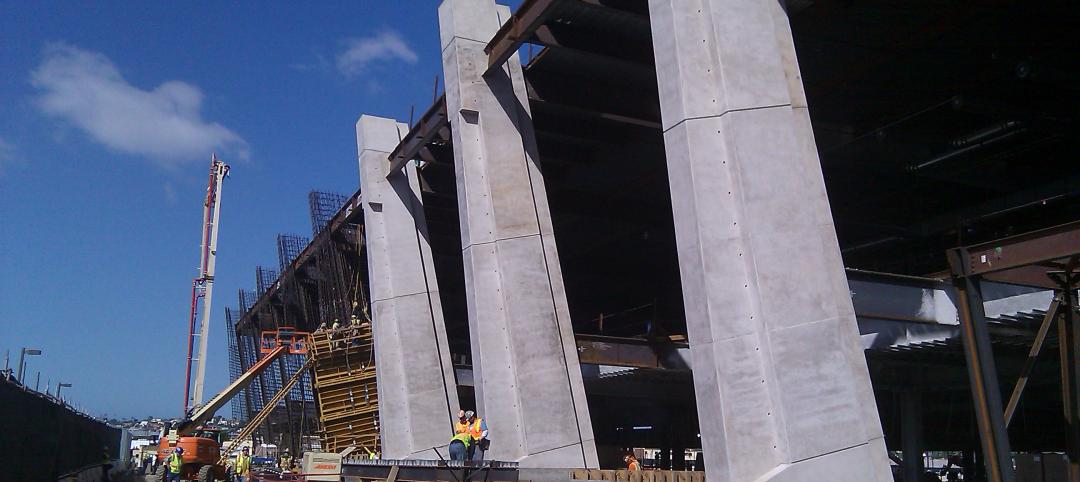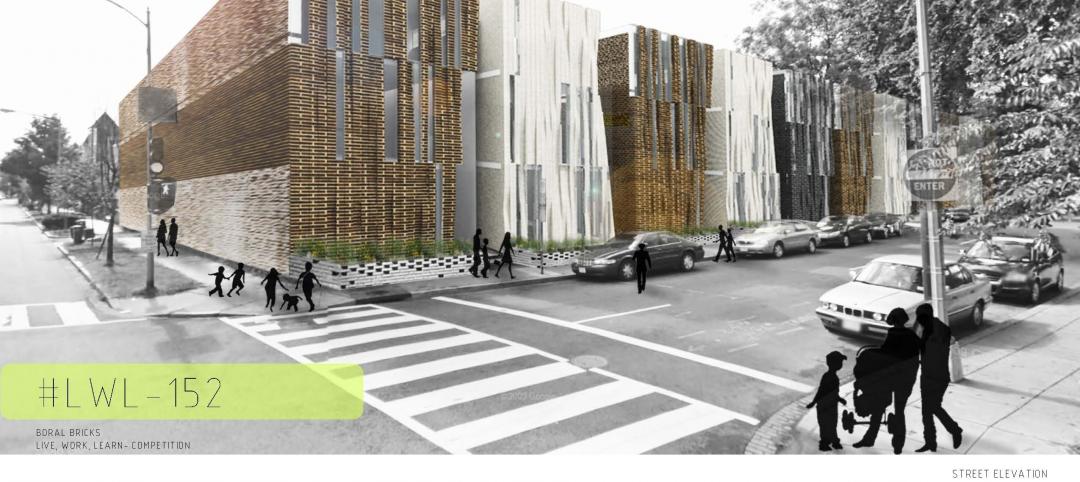The American Society of Civil Engineers estimates that the United States needs to spend $3.6 trillion by 2020 just to bring the country’s infrastructure back to a level described as adequate.
A new report by Transwestern, a privately held real estate firm, makes a case that investing in infrastructure can also be beneficial to surrounding commercial real estate. Called “Cranes and Lanes,” the report identifies major infrastructure projects in nine markets, and describes how the projects are impacting—or are likely to impact—the larger built environment.
“Cities have recognized that in order to stay competitive and generate economic development, the city’s infrastructure must keep up,” adds Brian Landes, a GIS expert and the report’s author. “While projects analyzed in the report run the gamut from new stadiums to reworked interchanges to entirely new districts, they do have one thing in common: a relatively certain boost in rents and occupancy.”
Several of the projects cited revolve around transit, such as the ongoing Modernization Project at Chicago’s O’Hare Airport, which Transwestern sees as a “catalyst for economic growth and job creation.” But there are a number of nonresidential building projects that are also expected to lead to ancillary development and construction.
Examples include:
• SunTrust Park, the new stadium for Major League Baseball’s Atlanta Braves designed by Populous, which should be completed next year. Transwestern says this stadium will bring with it a $400 million shopping, dining and entertainment district, as well as a new Omni Hotel and a 300,000-sf office building that Comcast will occupy.
• Seaport Square is a new neighborhood created from 23 acres of undeveloped land in South Boston’s emerging Seaport District. When it’s completed next year, it will encompass 2.75 million sf of residential, 1.25 million sf of office, 1.25 million ft of retail, 800,000 sf of hotels, 265,000 sf of cultural and civic space, and 2.25 million sf of parking. “The district will spur an evolution of Downtown Boston and shift the commercial center to the south and east,” the report states.
• Hudson Yards is the redevelopment of a vacant former industrial neighborhood along the West Side of Manhattan in New York City. It traces its roots to a 2005 rezoning aimed to transition the area into an extension of the Midtown business district. The project will eventually feature 6 million sf of office, 750,000 sf of retail, 5,000 apartments, 2 million sf of hotel and 14 acres of public space. Completion 2018.
• In San Francisco, Transbay District is currently under development. It will eventually house an intermodal transportation destination and 6 million sf of new office space. The new transit center will house three transportation options: (1) Caltrain will extend its terminus further downtown into the Transbay Transit Center; (2) The center will be the terminus for the future California High Speed Rail Line; and (3) the center will be the hub for regional bus service. Amidst the office build-out will be Salesforce Tower, the corporate headquarters for Salesforce and the second tallest building in the Western U.S. Completion 2020.
• Oakland Global Trade & Logistics Center will sit adjacent to the Port of Oakland on an Army base decommissioned in 1999. The project will bolster the West Coast’s third-largest port by adding an intermodal rail hub, additional railyards, a bulk terminal and more than 1 million sf of warehouse and distribution space. The project, which should be done next year, comes at an important time for the Port of Oakland, which moved nearly 2.3 million containers in 2015 and whose volume is expected to grow in the coming years.
Related Stories
| May 31, 2012
2011 Reconstruction Award Profile: Seegers Student Union at Muhlenberg College
Seegers Student Union at Muhlenberg College has been reconstructed to serve as the core of social life on campus.
| May 31, 2012
2011 Reconstruction Awards Profile: Ka Makani Community Center
An abandoned historic structure gains a new life as the focal point of a legendary military district in Hawaii.
| May 31, 2012
5 military construction trends
Defense spending may be down somewhat, but there’s still plenty of project dollars out there if you know where to look.
| May 31, 2012
New School’s University Center in NYC topped out
16-story will provide new focal point for campus.
| May 31, 2012
Day & Zimmermann taps Jobe for ECM VP
Ken Jobe, a senior executive with 30+ years of industry-related experience, joins Day & Zimmermann to expand footprint in the process & industrial markets.
| May 31, 2012
Perkins+Will-designed engineering building at University of Buffalo opens
Clad in glass and copper-colored panels, the three-story building thrusts outward from the core of the campus to establish a new identity for the School of Engineering and Applied Sciences and the campus at large.
| May 30, 2012
Construction milestone reached for $1B expansion of San Diego International Airport
Components of the $9-million structural concrete construction phase included a 700-foot-long, below-grade baggage-handling tunnel; metal decks covered in poured-in-place concrete; slab-on-grade for the new terminal; and 10 exterior architectural columns––each 56-feet tall and erected at a 14-degree angle.
| May 30, 2012
Pringle Brandon in discussions to join forces with Perkins+Will
The London offices would be known as Pringle Brandon Perkins+Will.
| May 30, 2012
Boral Bricks announces winners of “Live.Work.Learn” student architecture contest
Eun Grace Ko, a student at the Ryerson University in Toronto, Canada, named winner of annual contest.


